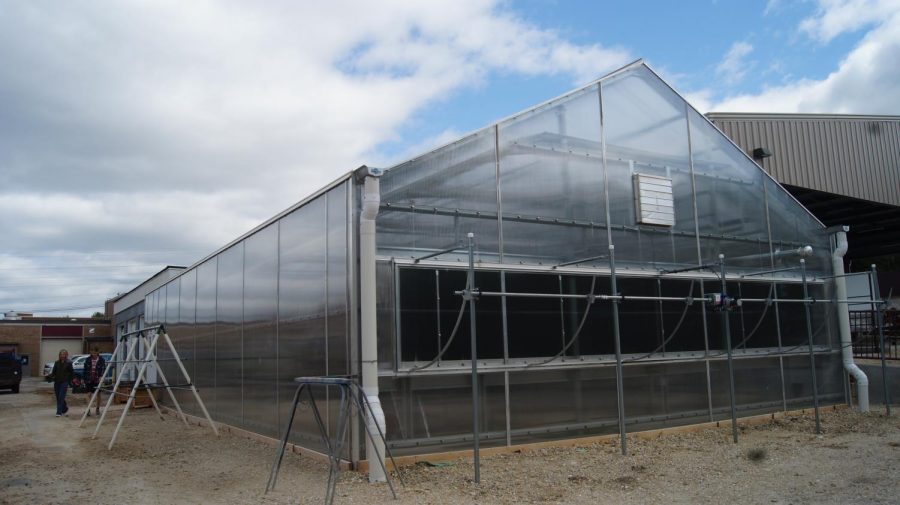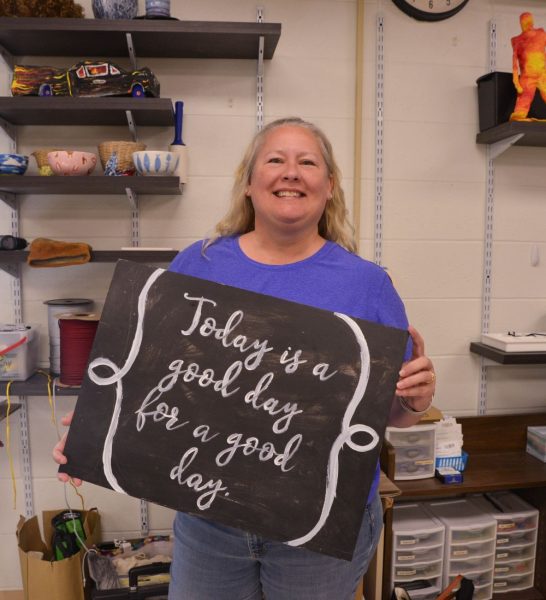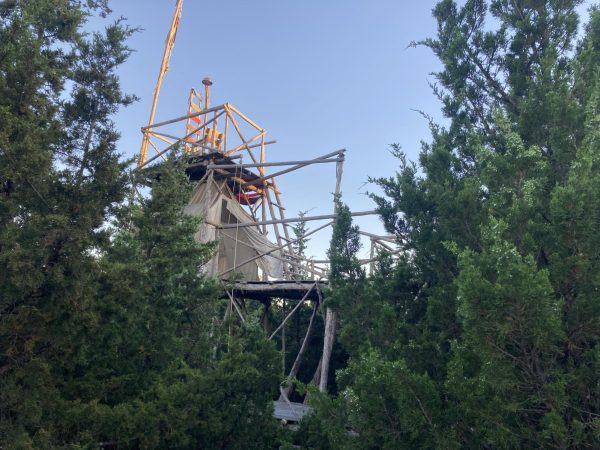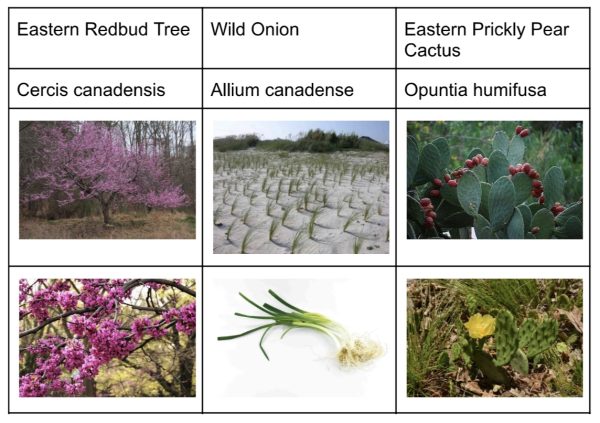The journey from seed to sale
If you have ever driven past the rolling hills of mid-Missouri, you have most likely seen fields of vines and acres full of flowering plants. Taking a step in Rolla specifically, there’s a bustling downtown farmer’s market with a range of locally grown produce. From vibrant homemade salsa to earthy root vegetables, there’s an endless possibility of things to purchase at the market.
Have you ever wondered how local farmers get their goods to our markets? Brandywine Farms is a family-run blueberry farm that prides themselves on growing top-quality berries year round. The farm was founded by former Rolla High School history teacher David Hinze and his wife. The Marti family now owns the farm and tends the plants. While the farm isn’t open to picking this year, the Marti family remains diligent in their blueberry care.
According to the Brandywine Farms website, the “process begins with planting in the fall and follows with pruning in the winter, flowering in the spring, and picking in the summer.” The farmers “do everything by hand in order to keep chemicals off of [Brandywine] plants.”
When cultivating crops for consumption, it is important to minimize the usage of harmful chemicals and pesticides. The Rolla Technical Institute’s horticulture class has dedicated copious amounts of energy into tending to flowers and plants for Rolla’s green thumbs. They have successfully grown a greenhouse full of flowers, plants, and vegetables that were put out for sale on Saturday, April 22nd.
Shyan Pankey, a senior and member of the horticulture class, is familiar with the process of chemical-free plant farming.
“The only thing we added to our plants was fertilizer. We had to mix it in one of the buckets with warm water and weigh it with the 1:20 ratio, then used a fertilizer injector to put it in our water hoses when we watered,” said Pankey.
Plant farms must maintain a consistent schedule in order to keep their crops ready for picking. According to Brandywine Farms,“You must carefully analyze soil pH, rain and irrigation moisture, and fertilize the plants three times per year.”
Similar to Brandywine Farms, the horticulture class keeps their watering and fertilizing constant throughout the growing season.
“We keep up-to-date with the watering, sometimes fertilize them when they need it… the hanging baskets, we fertilized them and they popped up like crazy,” said Pankey.
With the new addition of the greenhouse, FFA is able to maintain ideal temperatures and lighting for the plants automatically. This makes for less labor and allows for the plants to have a higher rate of survival.
“Our tomatoes started from seed. We got a ten-by-twenty tray, just covered it in dirt and made little lines in the dirt, then we put our seeds in a row. We sprinkle it with dry media, then we lightly watered them. We continued to put them on heating mats that we had in the greenhouse then watered them. They did pretty good with that,” said Pankey.
Both Pankey and Brandywine Farms start their growing process from seed, but Pankey uses her knowledge of horticulture to utilize the features of the greenhouse. Meanwhile, Brandywine Farms takes advantage of a more natural process of growth.
“Bees will busily pollinate the white, bell-shaped flowers on the blueberry plant. This fertilization begins the process of forming a small, greenish berry. Then we sit back and let Mother Nature provide rain to plump the berries and sun to carry the sugar from the leaves into the ripening berry,” said Brandywine Farms.
Consumers tend to purchase more visually appealing produce because we eat with our eyes first.
“[When] growing plants for sale, we want [the plants] to look nice. At home, it doesn’t really matter what they look like,” said Pankey.
Pankey hopes people will recognize the FFA’s hardwork in their greenhouse and that they will have a flourishing business.
“I hope kids enjoy [the greenhouse]. Like we all do, some people might find it exciting…But I really hope people recognize it for what it is and continue to buy plants that we sell,” said Pankey.
Rolla FFA Alumni will host their annual strawberry sale on May 12th in the RTI parking lot. Stop by and enjoy the fresh Californian-grown strawberries!

Hello! My name is Michelle and I’m a senior this year. This is my second year in ECHO. I participate in band (front ensemble), Stuco, FIDO, and I’m...








